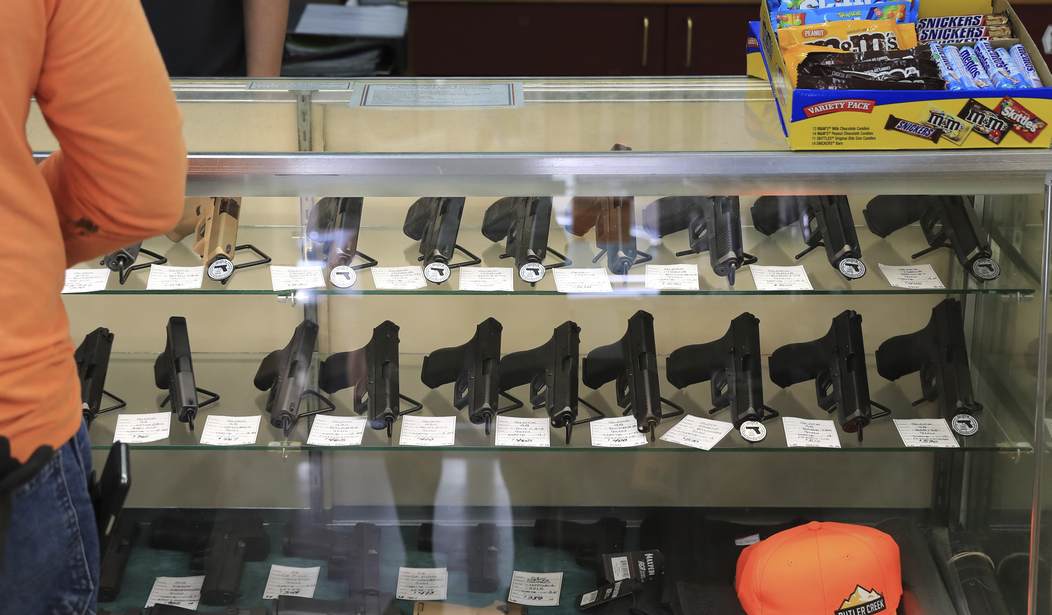A while back, Cam wrote about a Bloomberg columnist that talked about why gun control studies are worthless. He talked about a discussion in a video at Reason talking about these gun studies.
However, there was something at Reason that Cam didn’t touch on that I’d like to highlight, even though this video came out over a year and a half ago.
It’s this:
In terms of the gun control studies deemed rigorous by RAND, this means that even if there were no relationship between gun laws and violence—much like the relationship between drinking milk and getting into car accidents—we’d nevertheless expect about five percent of the studies’ 722 tests, or 36 results, to show that gun regulations had a significant impact. But the actual papers found positive results for only 18 combinations of gun control measure and outcome (such as waiting periods and gun suicides). That’s not directly comparable to the 36 expected false positives, since some combinations had the support of multiple studies. But it’s not out of line with what we would expect if gun control measures made no difference.
Also concerning is the fact that there was only one negative result in which the researchers reported that a gun control measure seemed to lead to an increase in bad outcomes or more violence. Given the large number of studies done on this topic, there’s a high statistical likelihood that researchers would have come up with more such findings just by random chance. This indicates that researchers may have suppressed results that suggest gun control measures are not working as intended.
Most inconclusive studies also never get published, and many inconclusive results are omitted from published studies, so the rarity of pro-gun-control results and the near-total absence of anti-gun-control results is a strong argument that, based on the existing social science, we know nothing about the effects of gun control.
It’s this absence of anti-gun-control results that has bugged me since I first read this piece in March of last year.
If research is unbiased, as it should be, then how was there only one study that suggest there was a negative outcome related to passing gun control laws? Especially in light of just how many gun studies there have been over the years.
One easy answer for this, of course, is that such a link doesn’t exist at all and that gun control never leads to negative outcomes. That’s a problem for me because just like we’ve seen with studies that find gun control works, there is a lot more going on than just the passage of laws. At least some study should have picked up on at least these to some degree or another.
(This, of course, is in part because they don’t include some of John Lott’s amazing work that tends to find quite the opposite.)
A year and a half later, I didn’t have any answers.
To be fair, I still don’t. What I do have is an idea, which became very clear when I came across this piece earlier today talking about censorship–including self-censorship–in science.
One of the paper’s co-authors, psychology professor Steve Stewart-Williams, summarizes the evidence for the current wave of scientific censorship and self-censorship, as well as the rise of censorious attitudes among scientists, which motivated the paper:
- Increasing numbers of scientists report being sanctioned for conducting politically contentious research.
- Retractions of papers have become more and more common over the last decade, and at least some of these appear to have been driven primarily by concerns other than scientific merit. One group of scholars even retracted their own paper, not because it was scientifically flawed, but because it was being cited by conservatives in ways the authors didn’t approve of.
- Several lines of research suggest that studies reaching politically unpalatable conclusions may have a harder time negotiating the peer-review process than they would if the conclusions were in the opposite direction. As the paper notes, “When scholars misattribute their rejection of disfavored conclusions to quality concerns that they do not consistently apply, bias and censorship are masquerading as scientific rejection.”
- Recent surveys suggest that many academics support censuring or censoring controversial research, with support being strongest among younger scholars.
- Unsurprisingly, recent polls also suggest that many academics now self-censor on even mildly controversial topics.
- A large number of academics express a willingness to discriminate against conservatives when it comes to hiring, publications, grants, and promotions. Unsurprisingly, conservative scholars are particularly likely to self-censor.
- A growing number of journals have explicitly committed to judging scientific papers not just on the quality of the research but also on their (supposed) social or political impact. “In effect,” note Clark et al., “editors are granting themselves vast leeway to censor high-quality research that offends their own moral sensibilities.”
Now, look at all of this and ask yourself whether or not you can honestly say that gun control isn’t one of those issues that would be termed as “controversial.”
Obviously, it is. We know it’s a controversial topic and we know where academia itself tends to fall on the issue. We’ve even see gun control groups pressure the CDC to remove data inconvenient to their cause, suggestive of a high degree of bias at one of the institutions we most need to be able to trust.
As such, I find nothing in my own experiences covering the gun debate to suggest this doesn’t apply to gun studies and so-called gun violence research.
But censorship, even self-censorship, would explain it nicely. We don’t see these gun studies suggesting gun control doesn’t work because either the researchers decide not to submit them or because the journals reject them due to ideological reasons.
In this day and age, though, we shouldn’t be surprised. The weaponization of scientific research has been an ongoing problem for quite some time. There was no way it wasn’t going to spread.
Further, there was little reason for pro-gun researchers to get into the gig in the first place. Gun studies showing that the status quo was fine isn’t exactly an exciting field of research. People start looking at places they identify problems, places where they can make a difference in the world, and that was always going to appeal more toward anti-gunners.
Now, we can’t get gun studies that are actual studies because there isn’t an unbiased voice out there so far as I can tell. Not that academia will accept as an unbiased voice, anyway.
So this is why so many gun control studies are garbage. Even if they weren’t the result of rigged methodology, they’d still be suspect because there’s no reason to believe a gun study not supportive of gun control would ever see the light of day.








Join the conversation as a VIP Member